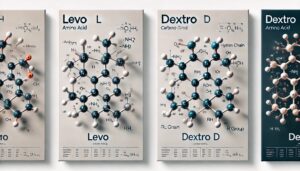ChatGPT: Revisiting the AI Issue
“In one of his lectures, [Joseph] Weizenbaum pointed out that we are incessantly striking Faustian bargains with this [AI] technology. In such contracts, both sides get something: the devil gets the human soul; humans get the services that delight us. Sometimes, the trade-off works for us, but with this stuff, if we eventually decide that it does not, it will be too late.”
John Naughton[1]
“There’s plenty of inaccurate information on the web already, but ChatGPT readily generates fresh falsehoods. Its underlying algorithms don’t draw directly from a database of facts or links but instead generate strings of words aimed to statistically resemble those seen in its training data, without regard for the truth.”
Will Knight[2]
“ChatGPT is to consumer tech what the Beatles were to music.”
Bespoke Investment Group analysts[3]
By my own count, this is my seventh missive dealing with the topic of artificial intelligence (AI). In previous missives, I have provided AI primers, tried to explain how AI is changing the face of war, and explored why the Chinese, in particular, are so excited about the future prospects of AI. I have written more about AI than any other topic, with the exception of those missives touching on my faith in the Lord Jesus Christ. As a result, my attention was especially drawn to the latest flurry of articles, media reports, speculation, disruptive technology claims, and dire warnings surrounding recent announcements regarding ChatGPT (and the broader topic of “generative AI”).
Why, you may ask, am I so interested in this topic?
Most of you know by now that I am close to self-publishing the first novel in a futuristic techno-Christian troika called The Prawnocous Trilogy. In brief, the books deal with how a group of Christian youths, (the biblical remnant, or as I call the group in my novels, “The Society”), living some 30-35 years in the future, deal with an increasingly techno-paganist world. The novels have been a labor of love: I’ve been working on them, and updating the technology involved, for the last three decades. The novels feature drones, new medical diagnostic tools, robotic-humanoids, new virtual reality devices, body-powered communications, and identification systems, and global technological megacorporations, among others.
As I write and think about the future—and what it will mean for my children and grandchildren—the most difficult futuristic piece for me to fit into the puzzle has been how to gauge the progress to be made by artificial intelligence (AI). Specifically, will AI advance exponentially toward the so-called “singularity” (that point where computer-based intelligences become indistinguishable from human-based intelligence); or will it proceed in sporadic “starts and fits” of breakthroughs. (What we are seeing today suggests the latter.) And if so, in either event, what will the world look like in 30-35 years?
From our present perceptual vantage point, it looks like AI will become the skeletal framework upon which the other advances—in biogenetics, communication technologies, the metaverse, quantum applications, etc.—will hang.
(All of that assumes the absence of a totally unpredictable, but game-changing, “Black Swan” event over the next three decades.)
For these reasons, AI-related topics have preoccupied my thinking for decades.
What makes this quest especially unusual is that my three professions—college history professor, intelligence analyst and lawyer—rely on much different spheres of thinking.
But it is the future, and what it holds for believers, that turns my wheels. It is the way I am wired …
That brings us to today’s ChatGPT topic.
What is ChatGPT?
It is a viral chatbox—search bot—that has generated feverish excitement in today’s internet world, largely because of the hope it can reinvent search engines. ChatGPT-3 (Chat Generative pre-Trained Transformer) is a third generation, autoregressive language model that uses deep learning to produce human-like text.[4] ChatGPT can provide complex and sophisticated answers to questions by synthesizing information found in billions of words scraped from the web and other sources to train its algorithms.[5] The chatbox is built on top of OpenAI’s GPT-3 family of large language models. Moreover, the chatbox has become a huge success: the AI conversational tool amassed 100 million users just two months after it launched.[6]
What are transformers (the “T” in GPT)? They are specialized algorithms for finding long-range patterns in sequences of data. Because a transformer requires a massive amount of data, it is trained in two stages: first, generic data which is easier to gather in large volumes and second, fine-tuned on tailored data for a specific task. Transformers were first developed by researchers at Alphabet Inc.’s Google in 2017. Since then, transformers have become pervasive across dozens of technologies.[7]
Let me try to cut through the considerable hype around ChatGPT—especially over the last week—to make four points. First and foremost, it is a new system. The algorithm at the core of the bot, called GPT, was first developed by OpenAI (more below) in 2018 with a more powerful version GPT-2 revealed in 2019.[8] GPT is a machine learning model designed to take in text and then predict what comes next. The first commercial version of the technology, GPT-3 has been available for developers to use since June 2020 and launched as a prototype in November 2020. The biggest leap in GPT-3’s abilities come from OpenAI having humans provide feedback to the system.[9]
Secondly, and in my view most importantly, ChatGPT’s release to developers less than four months ago triggered an AI/chatbox “arms race” among major tech giants. Today (Tuesday, Feb. 7, 2023), Microsoft announced—during an artificial intelligence event at its Redmond. Washington corporate headquarters—that it will “reimagine” its Bing search engine, using ChatGPT, as a step in bringing AI to the masses.[10] Sanya Nadella, Microsoft’s CEO, hailed the event as a paradigm shift for on-line search capabilities, and acknowledged “a new arms race starts today.”[11] What are Microsoft’s improvements? A new chat-style interface with a sidebar in addition to the usual list of links, a “feedback box,” a summarization of different viewpoints, and greater interoperability.[12] According to some sources, the announcement put Microsoft at the forefront of next wave of technological innovation: generative artificial intelligence.[13] Investors responded immediately as Microsoft shares climbed 7% on the announcement.[14]
What is behind Microsoft’s efforts? Bing was the world’s second most popular search engine in 2022, controlling a mere 3.04% of market share, according to Statcounter. Of course, the most popular search engine is Alphabet’s Google, with about 92.6% of the market. In third place is Yahoo (1.24% market share), followed by the Russian search engine Yandex (1%).[15]
Google, not to be outdone, and under intense pressure from ChatGPT, tried to preempt Microsoft’s announcement. In the words of one industry insider, “Google isn’t about to let Microsoft or anybody else make a swipe for its search crown without a fight.”[16] And so yesterday (Monday, Feb. 6, 2023), Sundar Pichai, Google’s CEO, wrote in a blog post that Bard is available to “trusted testers” and is designed to put the “breadth of the world’s knowledge” behind a conversational interface.[17] Bard will use a smaller version of a powerful AI model called LaMDA (Language Model for Dialogue Applications), that was first announced by Google in May 2021 and based on a technology similar to ChatGPT. Interestingly enough, Picai did not announce any plans to integrate Bard into the search box that powers Google’s profits, but rather opted in his blog for a more cautious approach to enhance conventional searches. Moreover, this chatbot will be launched in a few weeks, with no firm timeline.[18]
The Chinese high-tech corporation Baidu also has entered the generative artificial intelligence fray with an announcement today (Tuesday, Feb. 7, 2023) revealing concrete plans to launch a chatbox to rival ChatGPT. The announcement prompted a jump in the premarket trading of 15%. Baidu’s AI chatbox will be called “ERNIE Bot,” for English users, with plans to complete internal testing by March 2023, before making it available to the public. Baidu, the Chinese company which most resembles Google, has a core business in online search and advertising.[19] Another Chinese tech giant, Alibaba, announced its own AI-powered chatbot.[20]
Thirdly, ChatGPT is the brainchild of one of today’s most interesting research organizations. OpenAI is an American artificial intelligence research laboratory, founded in December 2015, consisting of both non-profit and for-profit subsidiary corporations. Its publicized mission is to conduct AI research to promote and develop AI in a way that benefits all of humanity. The organization was founded in San Francisco by Elon Musk, Peter Thiel, Sam Altman, and others, who collectively pledged $1 billion (Musk resigned from the board in 2018 but reportedly remains a donor).[21] The research company, headquartered in the Pioneer Building in San Francisco, has less than 400 employees. OpenAI’s products include GPT-3, DALL-E, OpenAI Five and OpenAI Codex.
OpenAI owes its existence to a few scientists—including Stephen Hawking and Stuart Russell—who maintained that the exponential growth of AI could lead to an “intelligence explosion” that could wipe out the human species. Elon Musk, for example, publicly portrayed runaway AI as humanity’s “biggest existential threat.”[22]
In recent years, OpenAI has received large infusions of cash from Microsoft: $1 billion investment in 2019, and a second multi-year investment in January 2023, reported to be $10 billion.[23]
Google’s counterpart in many respects to OpenAI is DeepMind, a UK-based AT start-up that Google acquired in 2014.[24]
Finally, there remain serious questions about ChatGPT. The first problem is an accountability issue. As Noah Smith observes:
“ChatGPT, the chatbox that has recently wowed the world, is a parametric model, but I wouldn’t get too hung up on that little detail. In terms of interpretability, a model with 175 billion parameters is not really different from one. with no parameters at all.”[25]
The next problem is what is being referred to as the “hallucination issue.” Some AI experts warn that that the ChatGPT tool does not understand the information it serves up and is inherently prone to making things up.[26] For example, Sarah Bird, Microsoft’s head of responsible AI, acknowledges that her company has not fully solved the hallucination problem.[27] For an increasingly politically correct, Woke-driven world, besides hallucinating incorrect information, AI models trained on text scraped from the Web are prone to exhibiting racial and gender biases and hateful language.[28]
Other problems cited by the experts include: how to replace existing social media advertising income streams and monetize ChatGPT-type searches (running such searches can be 10 times as costly as a typical Google search because of the large and complex AI models involved)[29]; the uncertainty whether ChatGPT will radically change the way human beings search for answers; its potential to infringe on intellectual property rights; and—as a former college professor—the troubling problem of student plagiarism on campuses as ChatGPT use to write papers increases.
I’ll conclude with this thought from John Naughton. He suggests we may be overhyping the capabilities of ChatGPT: “If we know anything from history, it is that we generally overestimate the short-term impact of new communication technologies, while grossly under- estimating their long-term implications. So it was with print, movies, broadcast radio and television and the internet. And I suspect we have just jumped on to the same cognitive merry-go-round.”[30]
[1] I have taken this quote from John Naughton’s very interesting opinion piece, “ChatGPT isn’t a great leap forward, it’s an expensive deal with the devil,” The Guardian, Feb. 4, 2023. Naughton is the 76-year-old Irish senior research fellow at Cambridge University and the Emeritus Professor of the Public Understanding of Technology at the British Open University. His most popular books are about the history of the internet and the future implications of technology.
[2] Will Knight, “The Race to Build a ChatGPT-Powered Search Engine,” WIRED, Feb. 6, 2023.
[3] Cited in Jack Denton, “ChatGPT Is ‘What the Beatles Were to Music.’ Time to Look Through the Haze of AI Fever,” Barron’s, Feb. 8, 2023.
[4] Luciano Floridi and Massimo Chiriatti, “GPT-3: Its Nature, Scope, Limits, and Consequences,” Minds and Machines (Commentary), published online Nov. 1, 2020.
[5] Ibid.
[6] Shirin Ghaffary, “Here Comes Bard, Google’s Version of ChatGPT,” Vox, Feb. 6, 2023.
[7] By far the best and most easily understood explanation of the technologies underlying ChatGPT is Karen Hao, “What is ChatGPT? What to Know About the AI Chatbot That Will Power Microsoft Bing, The Wall Street Journal, Feb. 8, 2023.x
[8] Knight, “The Race.”
[9] Knight, “The Race.”
[10] Rachel Lerman and Nitasha Tiku, “Microsoft launches search engine ‘infused with AI,’” The Washington Post, Feb. 7, 2023..
[11] Aarian Marshall, “Microsoft Taps ChatGPT to Boost Bing—and Beat Google,” WIRED, Feb. 7, 2023.
[12] Ibid. See also, Joanna Stern, “I Tried Microsoft’s New AI-Powered Bing. Search Will Never Be the Same,” The Wall Street Journal, Feb. 7, 2023.
[13] Tom Dotan, “Microsoft Adds ChatGPT AI Technology to Bing Search Engine,” The Wall Street Journal, Feb. 7, 2023.T
[14] Ibid.
[15] Luc Olinga, “Microsoft Has a Last-Minute Mysterious Surprise,” TheStreet, Feb. 6, 2023.
[16] Will Knight, “Meet Bard, Google’s Answer to ChatGPT, WIRED, Feb. 6, 2023. Knight’s article offers an excellent comparison of ChatGPT-driven Bing and a future Bard.
[17] Ibid.
[18] Ibid; see also, Ghaffary, “Here Comes Bard”: Zoe Kleinman, “Bard: Google launches ChatGPT rival,” BBC, Feb. 6, 2023; Rob Lenihan, “Google Has a ChatGPT Rival,” TheStreeet, Feb. 6, 2023.
[19] Jack Denton, “Baidu Enters the AI Race With ‘ERNIE Bot,’” Barron’s, Feb.7, 2023.
[20] Denton, “ChatGPT … Beatles.”
[21] See, among others: “Introducing OpenAI,” OpenAI, Dec. 12, 2015; John Markoff, “Artificial Intelligence Research Center is Founded by Silicon Valley Investors,” The New York Times, Dec. 11, 2015; and Karen Hao, “The messy, secretive reality behind OpenAI’s bid to save the world,” MIT Technology Review, Feb. 17, 2020.
[22] Kelsey Piper, “Why Elon Musk fears artificial intelligence,” Vox, Nov. 2, 2018.
[23] Ryan Brown, “Microsoft reportedly plans to invest $10 billion in creator of buzzy A.I. tool ChatGPT,” CNBC, Jan. 2023.
[24] Knight, “Meet Bard.”
[25] Noah Smith, “The Third Magic: A meditation on history, science, and AI,” Substack app, Jan. 1, 2023.
[26] Knight, “Meet Bard”; see also the views of Gary Marcus, professor emeritus at New York University, cited in Knight, “The Race.”
[27] Marshall, Microsoft Taps.”
[28] Ibid.
[29] Knight, “The Race.”
[30] John Naughton, “The ChatGPT bot is causing panic now—but it’ll soon be as mundane a tool as Excel,” The Guardian, Jan. 7, 2023.




